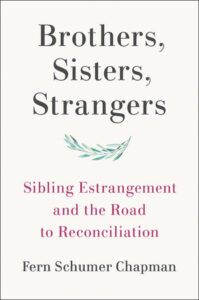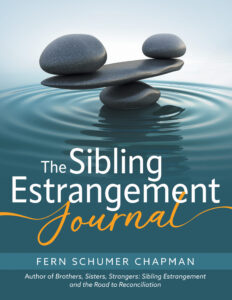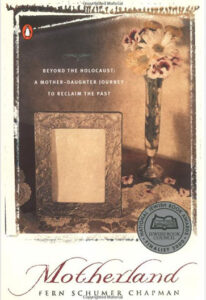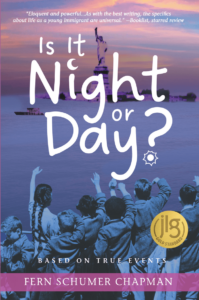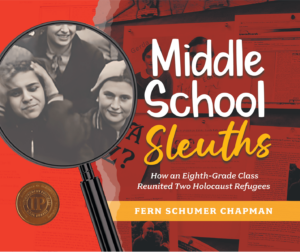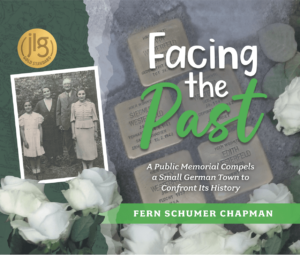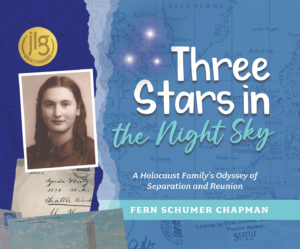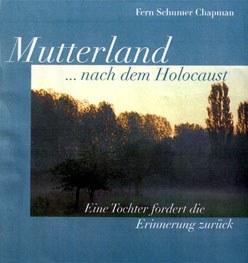Reviews
"A terrific, compassionate, much-needed book about broken family relationships and the path to healing."
-Dr. Wendy Mogel, New York Times bestselling author of The Blessing of a Skinned Knee
"In this stunning family memoir, she fearlessly probes the forty-year estrangement from her brother and chronicles their uneasy road to reconciliation. Along the way, she deftly weaves in pertinent social science research, capturing the voices and insights of hundreds of people suffering from sibling alienation. Brothers, Sisters, Strangers deserves to be read and discussed for years to come."
-James B. Lieber, Pulitzer Prize-nominated author of Friendly Takeover
"No better book presents the subject of sibling estrangement in such a far-reaching, personal, and practical way. A must-read!"
-Ali-John Chaudhary, psychotherapist
Publisher's Weekly Review
Journalist Chapman (Motherland) shares a deeply moving account of a decades-long rift with her only brother and how they found a path to resolution. While parental estrangement is more openly talked about, she writes, "I realized early on the disturbing nature of how others perceive a sibling rupture." The split with her brother, Scott, happened gradually, starting in her 20s. "Hurt piled on hurt, slowly building a hard shell of separation" that kept them from speaking for 40 years, until a call from their mother brought them back together. In reconnecting, she and Scott reckoned with the shared childhood trauma caused by their distant parents. Shocked at how little literature there was on the subject of sibling reconciliation, Chapman decided to compile her own research. To that end, she weaves in interviews with psychologists and firsthand accounts from other estranged siblings, and the story becomes a hybrid of memoir and an illuminating guide to navigating estrangement. Chapman helps readers decide whether a relationship is worth saving, and how to open up communication and reestablish trust; she also tackles issues surrounding addiction, social media, and holidays. The author's vulnerability turns what could have been a clinical look at family dysfunction into a sensitive, compassionate narrative. Even cynics will find hope in this story of redemption. Agent: Marian Young. (Apr.)
Kirkus Review
Estrangement from a sibling can be psychologically fraught--and reconciliation even more so. Journalist and writer Chapman opens with the revelation that for almost 40 years, she and her older brother did not speak. "I can't recall a specific fight or incident that led to our estrangement," she writes. "We simply didn't have much to say to each other, and in time, we said nothing at all." Decades later, she began to search for connection. Such estrangement, she observes, is something that seems nearly incomprehensible. Everyone understands divorce and parent-child friction, but a gulf between siblings is a mark of failure: "If she can't maintain a relationship with her own brother, is she capable of sustaining any relationship?" Finally making contact, she discovered, in a revelation whose details are forthcoming in fragments, that the real alienation was between her brother and her "tyrannical" father, with whom she got along better than her brother did. Her brother self-medicated and hid himself away. The fact of a breach is not unusual, writes the author; sibling relationships are fluid, "dynamic and sometimes volatile, with peaks and valleys." An argument over some simple thing--who will host a holiday dinner, say--can lead to years of silence. According to one survey of adults ages 18 to 65, "only 26 percent enjoyed a healthy sibling relationship characterized by frequent contact and low competitiveness." Maintaining the separation, Chapman writes, can be as psychologically difficult as the initial breach, and mending it even harder. She suggests being very careful of monitoring each other on social media, a source of division among the healthiest of us, and stresses the importance of overcoming self-imposed exile. After finally rebuilding some of the lost relationship with her brother, Chapman offers a few pointers: Maintain boundaries, avoid hot-button topics, and know when to switch to another subject or walk away from a squabble. A primer in mending familial fences blended with an affecting memoir. Copyright (c) Kirkus Reviews, used with permission.
"This is such an important book -- and so easy to use. A must for anyone who is hurting from having breached relationship with a sibling."
-Dr. Karen Gail Lewis, Family Therapist and Author of Sibling Therapy: The Ghosts from Childhood that Haunt Your Clients' Love and Work
EstrangedSib gives the Journal a five star review on Amazon:
"Costs less than a glass of wine and much more effective! This is the best money I've spent on coping with the emotions of my sibling totally estranging me more than two years ago now. I highly recommend this workbook!"
Comments from readers:
"The journal has been enlightening and so helpful! As a daily journal writer for 63 years, I find writing ideas down helps my processing."
"Love your book and I highly recommend it to all who are suffering through an estrangement"
"I too have read your book. It is very helpful."
"I have read the book and am working through the workbook now. Thank you so much for writing the book. It has helped me tremendously."
"An outstanding portrait of the painful postwar waltz of Germans, their victims, and their victims' victims."
Kirkus Reviews
"Chapman knew little about her mother's childhood in a small German village, where hers was one of only two Jewish families, or how she felt when her parents sent her to the U.S. when she was 12, in 1938. Haunted as she was by the loss of her family, she never spoke of it, and so Chapman was surprised by her invitation to accompany her on a trip back to Germany. Measured and mesmerizing, Chapman's account of their unpredictable experiences, and the insights they gained into the anguish and guilt of the Germans who remembered her mother, constitutes a new and profound perspective on the legacy of the Holocaust. Turning journalistic pragmatism into an art form, Chapman allows each wrenching fact and observation to land in the mind like a stone in a pond, sending out ripple after ripple. No one survived the Holocaust unscathed, she realizes, neither Jew nor Gentile, and the sorrow is handed down from one generation to the next as inexorably as a gift for music, or beautiful deep, dark eyes."
Booklist
"Meticulously detailed account…which Chapman renders with precise and often moving prose."
Chicago Tribune
"Fern Schumer Chapman's account of Edith Westerfield's return to Germany half a century after her forced exile was a finalist in the National Jewish Book Awards for 2000. Anyone who reads her observations about the remnants of anti-Semitism will surely be moved and even outraged."
Dallas Morning News
"This finalist in the 2000 National Jewish Book Awards should have been a winner. It's beautifully written and is so gripping that it is hard to put down… It is a book that can be discussed and appreciated for its literary elements, its historical significance and its depiction of a mother-daughter relationship"
San Diego Jewish Press Heritage
"Amazing… tragic and triumphant… incredibly powerful."
WomanLinks.com
…a "powerful memoir"
St. Louis Post-Dispatch
"MOTHERLAND has elicited favorable reviews for its personal, poetic, yet journalistically meticulous approach."
Indianapolis Star
"Sometimes heartbreaking, always eloquent, this is a fascinating look at one girl's narrow escape from Nazi Germany…"
Education.com
"This is a superb addition to any Holocaust or American History collection. Students will be moved by Edith's story."
Voices of Youth Advocates (VOYA)
" … eloquent and powerful… As with the best writing, the specifics about life as a young immigrant are universal…"
Booklist starred review
"exceptional story of survival and devotion to homeland"
Library Media Connection, starred review
"rings with authenticity…Moving!"
Kirkus Reviews
Is It Night or Day? by Fern Schumer Chapman, tells the story of Edith Westerfeld, a 12-year-old Jewish girl whose parents send her, alone, to the United States in 1938 to escape the Nazis. Told in Edith's voice, the novel captures both the specific fears of a child fleeing the Holocaust and the more general experiences of immigrants adjusting to life in a new country. It's easy to identify with Edith's loneliness and loss. Her story puts a human face on one way that Jewish children survived the Nazis."
The Crimson Review of Children's and Young Adult Literature (University of Alabama's School of Library and Information Studies)
"…This heart-wrenching novel is based on the true life events of the author's mother and a little known American rescue organization called 'the One Thousand Children.' It joins books such as THE DIARY OF ANN FRANK and NUMBER THE STARS as a must-read for upper elementary students."
The Southern Poverty Law Center's magazine, Teaching Tolerance, which named Is It Night or Day? as a "Teaching Tool" in its Spring, 2011 issue studying World War II.
"…An excellent introduction to the Holocaust… an important addition to any library, especially those serving elementary and middle school students. The combined reading of Chapman's three titles, Motherland, for adults, Is It Night or Day?, for middle school ages, and Middle School Sleuths for slightly younger, would make a compelling congregational or community read."
Association of Jewish Libraries
"Every child should read it. Every school should teach it."
Pulitzer Prize nominee James B. Lieber
"Informs and Inspires!"
Hadassah Magazine
"This is a book I can pick up again and again and find something deeper each time. It has helped me to realize that there were so many levels of hurt associated with the Holocaust, at so many different places around the world."
http://wordmachine-bookreviewtravels.blogspot.com/
"This slender book is both a memory and a memorial, a tribute and a warning, a look at what is and what was…A gateway to this piece of world history, and to a discussion of the need to remember and atone in order not to repeat horrendous events of the past."
Jewish Book Council
"The Chicago journalist and author tells a story filled with urgent language, love, and pain."
Women on the Way, October 2002
"…a moving story of reconciliation."
Crosswiseal, autumn/winter 2002
"A daughter reclaims the memory and goes with her mother on a journey to the places of the past. On this journey, both recognize how the relationship between mother and daughter is shaped."
Kulturette, meeting magazine for women, September 2002
"The two women find each other on this journey to the mother's homeland and discover the depth of their losses. The journey leads to the daughter's deeper understanding of the mother."
Ekz news service, September 2002
"…an impressive book. It is a story of love, of mothers and daughters, and of the importance of one's roots"
Evangelist Church Internally, August 2002
"MOTHERLAND describes their search for the past and the mother/daughter relationship in a very poetic way. It is authentic and a story searching for the truth. The book is a must-read. It's about mothers and daughters, the past, the difficult relationship between generations and between Jews and Germans."
Ariadne, Forum for Women's stories, Review by Dr. Gudrun Maierhof
"Profoundly moving…It will resonate with local residents."
Reid Information
"Powerful… It will impress the local school teachers and children who will probably read it in class…The readings around Germany have evoked discussions about the past. No one who attends will forget these events."
Großß-Gerauer Echo

